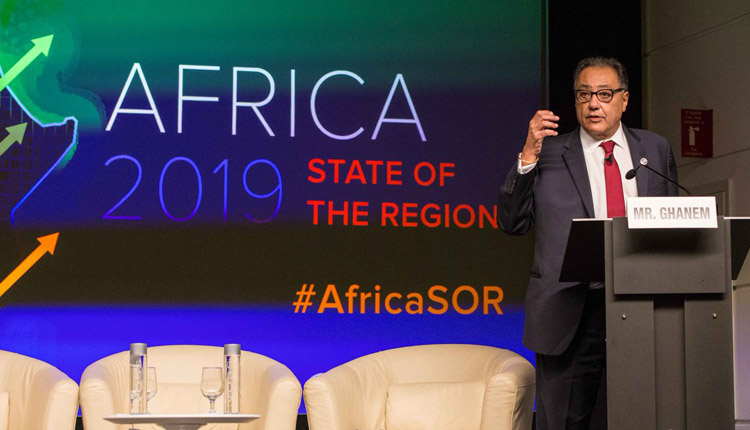Economic growth in Africa declined to 2.3 percent in 2018, compared to 2.5% in 2017, in addition the fragility of the continent weighs on its economy, Hafez Ghanem, World Bank Vice President for Africa.
The world Bank is helping the African region reduce poverty and boost economic growth, through four ways including economic transformation and job creation – especially harnessing the digital revolution, investing more and better in people – and empowering African women, Closing the infrastructure gap by leveraging private sector know-how, and Reducing instability and conflict, and how regional cooperation can contribute to greater stability, he added.
“The State of the Africa Region” seminar tackled the main trends shaping the continent’s economic and development landscape, as the Africa region’s premier event at the World Bank Group–IMF Annual and Spring Meetings.
The event was attended by Hafez Ghanem, Vice President, Africa, Albert Zeufack, World Bank Chief Economist for the Africa Region, Hassan Ali Khayre, Prime Minister of Somalia, Alamine Ousmane Mey , Cameroon Minister of Economy, Planning, and Regional Development, Aïchatou Boulama Kané, Niger Minister of Planning and Nana Apenem Dagadu, Save the Children US – Advisor, Monitoring & Evaluation/Reproductive Health.
Empowerment of women and youths, use of technology and multisectoral collaboration are essential tools in combating fragility which is a threat to Africa’s economic development, says Ghanem.
According to the panelists fragility has become the new development frontier; by 2030, 620 million people or more than 80% of the world’s poorest could be living in fragile contexts, largely in Africa.
Economic growth in Sub-Saharan Africa is estimated to have decelerated from 2.5 percent in 2017 to 2.3 percent in 2018, below the rate of growth of population for a fourth consecutive year. Regional growth in 2018 is below the pace projected in 2018 October, Albert Zeufack World Bank Chief Economist for the Africa Region said.
He added that sub-Saharan African countries with fragile context have made considerable efforts to find a way out of fragility.
““Africa has made great strides in mobile connectivity. Still lags the rest of the world in access to broadband”, Zeufack noted.
Zeufack noted that the digital revolution, if fully embraced, could add 2% of growth and reduce poverty by 1%. World Bank Africa is investing in closing the digital gap to achieve this digital dividend.
Moreover, Hassan Ali Khayre, Prime Minister of Somalia clarified that “I represent Somalia of today, tomorrow and the future, not the Somalia of the past 25 years. We are changing the narrative to focus on opportunity and development, and this will benefit the whole region”.










